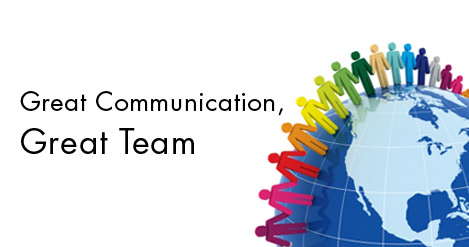We all communicate daily in our work lives, our personal lives, and professionally to build relationships, but do you know how effective your communication style is and are you communicating with trust? Whether you are a CEO, teacher, manager, nurse, parent, or executive, the way you communicate impacts everything including: employees, company culture, your career, your students, your patients, communities, and your family. Leaders can obtain the highest position in a company or country for that matter, but not have effective communication that creates trust.
Do you know how your communication skills are and what effect they are having on the people around you?
Communication that Builds Trust
Why is learning about our own communication style important and why is it imperative we understand trust and its impact in every conversation?
The way you communicate has neurological and therefore physiological outcomes in others that can send someone into flight and fight mode of protection and resistance or on the flip side allow for trust, connection, and partnering. (Judith E. Glaser). What’s alarming is that many of us are going about our day leading people, teams, organizations, business relationships, and families and not realizing that our conversations may be literally shutting down the highest functioning parts of the brain, our Pre Frontal Cortex.
When the Pre Frontal Cortex shuts down, we are disengaging the part of the brain that performs decision making, innovation, empathy, visioning, and all other executive brain functions. What’s scary is that without intention and simply due to lack of knowledge in the neuroscience of communication, many of us may be creating conversations of distrust rather than trust.
In order for our communication to build trust and open the Pre Frontal Cortex, we need to understand and implement the following:
- Listen without judgement, the need to reject, or to respond
- Develop a ‘We-Centric’ leadership approach (Judith E. Glaser)
- Down Regulate Cortisol producing behaviors like withholding, limiting, criticizing, knowing, judgement
- Up Regulate Oxytocin producing behaviors like appreciation, including, celebrating, empathy
- Learn the three levels of Conversation and how Level 1 produces the most Cortisol and Why and How to develop Level III Conversational Intelligence
(Judith E. Glaser)
Discover How You Communicate as a Leader
Without getting too technical in the neuroscience of communication, what is most important to understand is the conversations you have daily are producing reactions neurologically in your teams, companies, and families; these then create responses of trust or distrust which affects their brain’s executive functioning capacity and ultimately their interaction with both you and the surrounding environment.
Conversational Intelligence or C-IQ facilitates the understanding and growth of people to communicate for trust. It is the neuroscience of communication with over 35 years of research and provides teachings and methodologies to guide professionals, executives, leaders, companies, and families to build strong foundations of trust.
People or organizations that want to improve their communication and trust for a collaborative, inclusive, innovative, and effective experience or culture can integrate C-IQ in the following ways:
- Private C-IQ Coaching for Individuals, Team Members, & Conflict
- Company Communication Engagement with the C-IQ Catalyst Tool
- Team Communication Roadmap Facilitation
- The Trust Catalyst Tool to assess Trust in your Team or Company and Develop a Culture of Communication with Trust
- Leadership Team Communication Integration of C-IQ
The impact C-IQ is having for people in their relationships, daily interactions, for their teams, and entire companies is transformative and it is creating collaborative cultures with high trust. This trust then translates into engagement, innovation, empathy, inclusive work places, collaboration, and visioning because of the activation of the executive brain function with effective communication.
If you would like to learn more about how you or your company is performing when it comes to effective communication for connection and building trust, reach out for a complimentary consultation to Jody at [email protected]
Connect with me on Social